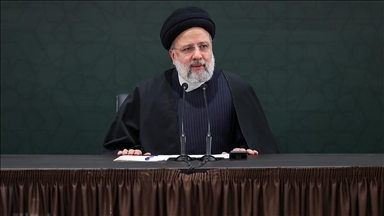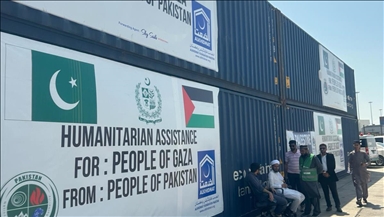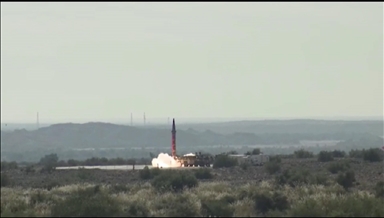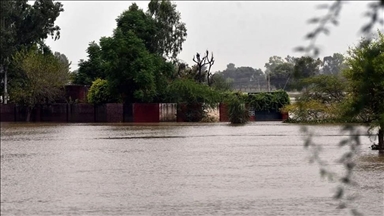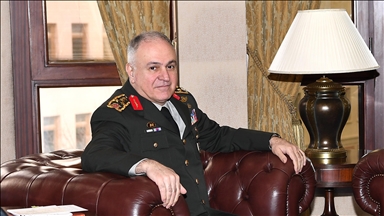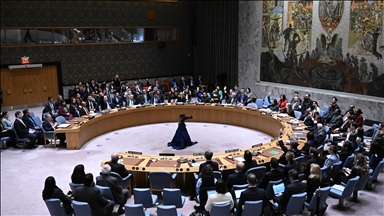Pakistani parliament approves merger of tribal regions
Constitutional amendment paves way for abolishment of 19th century British colonial law affecting Pakistan's tribal belt
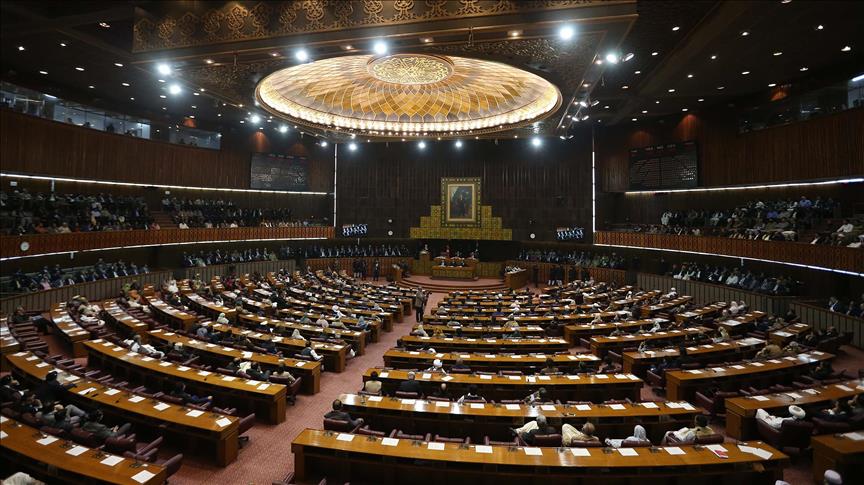
By Aamir Latif and Islamuddin Sajid
KARACHI/ISLAMABAD, Pakistan
The parliament on Thursday approved a constitutional amendment paving the way for the abolishment of a
Some 229 members of the lower house -- the National Assembly -- from the ruling and opposition parties passed the 31st constitutional amendment during an exclusively-summoned session in capital Islamabad. Only 11 legislators belonging to the government’s two allies opposed the legislation, which calls for the merger of Pakistan's seven semi-autonomous tribal regions with northwestern Khyber Pakthunkhawa (KPK) province.
Premier Shahid Khaqan Abbasi, opposition leader Khursheed Shah, and Pakistan-Tehrik-i-Insaf Chairman Imran Khan were among the pro-amendment legislators who congratulated each other after Speaker Ayaz Sadiq announced the voting results.
"I congratulate the people of FATA for this historical achievement as today they have gotten rid of the 150-year-old colonial system,” Abbasi told the parliament.
Apart from political and religious parties, the National Security Council comprising top civilian and military leadership also threw its weight behind the move last week.
A majority of political religious parties, including the ruling Pakistan Muslim League (Nawaz group), and the two main opposition parties -- Pakistan Peoples Party (PPP) and Pakistan Tehrik-e-Insaf (PTI) -- along with the religious party Jamaat-e-Islami, Pashtun nationalist Awami National Party (ANP) and other regional parties also backed the legislation.
Only the Jamiat Ulema Islam (JUI) led by Maulana Fazl-ur-Rehman, which enjoys a sizeable presence in the tribal areas opposed the merger. It wants the tribal regions to become a separate province.
The 25-point bill will now be sent to the upper house - the Senate -- for further approval, which is a mere formality as the bill’s supporters enjoy a brute majority there as well. After approval from the Senate, the bill will be sent to the president for final approval to become part of the country’s constitution.
Following the latest constitutional amendment, over five million people of the tribal region will have representation in the KPK provincial assembly, and access to the high court and the supreme court in line with other Pakistani citizens for the first time since 1947 when the country gained its independence.
End to collective punishment
It will also provide a local government system to the tribal region for the first time, in addition to a yearly 100 billion rupees (nearly $10 million) additional grant for next 10 years.
Also, the current eight seats allocated for the tribal region in the Senate will remain intact for the next five years.
The tribal regions commonly known as “agencies” -- North Waziristan, South Waziristan, Bajaur agency, Kurram agency, Orakzai agency, Mohmand agency, and Khyber agency -- are currently governed under the 19th century British era law called the FATA Crimes Regulations (FCR).
According to the system currently in place, if a person is found guilty of any crime, his whole tribe gets subjected to collective punishment.
Similarly, if a bomb blast takes place in front of a house in FATA, the entire male members of the family are held responsible for the crime on the pretext that they had failed to stop the perpetrators.
The 700-kilometer (435-mile) belt had been an epicenter of militancy since Pakistan joined the so-called war against terrorism in 2002, which saw a series of military operations and a large number of casualties.
In June 2014, Pakistan army launched a series of decisive onslaughts on North Waziristan, Khyber Agency, and adjoining areas to eliminate the Pakistani militant groups’ umbrella organization, Tehrik-e-Taliban Pakistan (TTP).
Over 5,000 suspected militants, and more than 700 troops were killed in clashes, airstrikes, and landmine blasts during this period.
The military operations had also displaced over a million tribesmen, mainly from North Waziristan and Khyber agency; the government claims more than 95 percent have now returned to their homes.
Anadolu Agency website contains only a portion of the news stories offered to subscribers in the AA News Broadcasting System (HAS), and in summarized form. Please contact us for subscription options.


